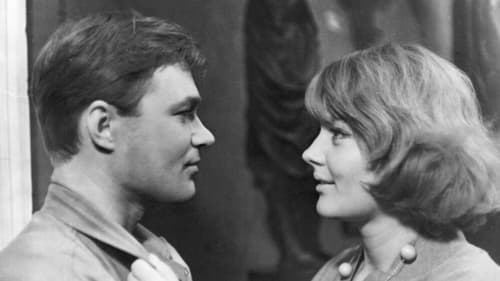
himself (uncredited)
Having returned from the army, 20-year-old Sergei settles down at the thermal power station and merges into ordinary life. Every day he meets and spends time with childhood friends — the young family man Slava and the merry fellow Nikolai, and once at first sight he falls in love with a stranger on the bus. A lyrical story about a generation of young people entering adulthood, a reappraisal of values, life principles, traditions in culture and art.

Writer
"Se amanhã houver guerra" [Если завтра война] foi produzido nas vésperas da II Guerra Mundial. É um "típico" filme de propaganda patriótica bélica; sobre a capacidade da URSS de repelir qualquer agressor (dastaque para os alemães). Documenta treinamentos, desfiles, recrutamento e o preparo do Exército Vermelho para a guerra iminente. Dzigan, no início da década de 1930, havia feito filmes sobra a emancipação feminina tais como "O julgamento deve prosseguir" [1930, Женщина] -- camponeses, nas fazendas comunitárias -- e "Mulher" [1932, Суд должен продолжаться] -- citadinos, sobre o machismo e outros costumes burgueses. Na segunda metadade dos anos 30, Dzigan é designado como diretor de filmes militares, como "Nós somos de Kronstadt" [1936, Мы из Кронштадта] e este, o qual foi co-dirigido por Efim Dzigam [Ефим Дзиган], Lazar Antsi-Polovskiy [Лазарь Анци-Половский], Nikolay Karmazinskiy [Николай Кармазинский] e Georgi Beryozko [Георгий Березко].

